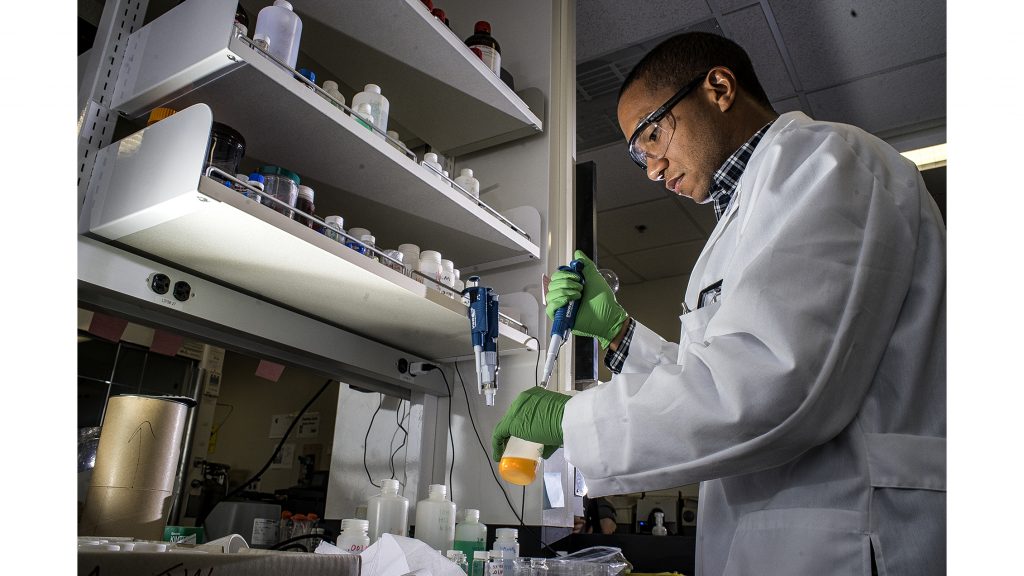On the East Side of campus, a group of graduate students and professors work to research nuclear energy and to find better ways of disposing nuclear waste.
The University of Iowa has recently received grants from national agencies including the U.S. Department of Energy, the Nuclear Regulatory Commission, and the Department of Homeland Security.
Fourth-year graduate chemistry student Maurice “Mo” Payne said one of the benefits the average person can see from the research is clean drinking water.
“When nuclear waste spilled or when it leaks from the containers, it gets into the environment, and it’s usually in water,” Payne said.
“The average Joe should know that people are working hard to make sure that doesn’t happen.”
The lab also researches ways of identifying radioactive elements in water supplies and stopping them from reaching the public and causing harm.
One benefit of winning federal grants is the ability to purchase upgraded equipment for the lab.
The lab’s 20-year-old single crystal X-ray diffractometer, used for determining the atomic and molecular structure of a crystal, was upgraded using grant funding, and that reduced experiment time from more than a day to 30 minutes to a couple hours.
Tori Forbes, associate professor in the Chemistry Department who established the UI’s nuclear-research core, is also focused on building the next generation of radiochemists — people who study the chemistry of radioactive materials.
Forbes sees a situation in which more people are leaving the radiochemistry field than there are joining it, which she attributes to a lack of public knowledge and the negative press nuclear energy has garnered since the 1970s.
RELATED: Metastatic Melanoma research start-up receives $2 million grant
“When you mention the word nuclear and people think bombs, they think accidents, and they don’t think about energies,” Forbes said. “There’s been a decline in interest in this area.”
One of the students she was able to recruit was Payne when he took one of her undergraduate courses.
Forbes hopes to expand from the single radiochemistry course offered to undergraduate students with the help of the State Hygienics Lab to get students more hands-on lab experience.
Another stop on the future’s road map for Forbes is creating a center of excellence for radiation and sciences, including radiochemistry, connections with environmental science, and the politics behind nuclear energy.
On the West Side of campus, Michael Schultz, a UI associate professor in the Radiology Department, researches the medical benefits of nuclear research.
“Some nuclear-waste streams produce isotopes that we can use for medical imaging and cancer therapy,” Schultz said.
An example of the kind of research he and resident radiologists do can be seen in his start-up company Viewpoint Molecular Targeting, which is working on a radiopharmaceutical that could travel through the human body and search for melanoma cells to find and kill without harming other parts of the body.
Forbes and Schultz introduced Radiochemistry: Energy, Medicine, and the Environment in 2013 to pique undergraduates’ interest in radioactive and nuclear chemistry. The class has grown from 16 students to nearly 50 this spring.



